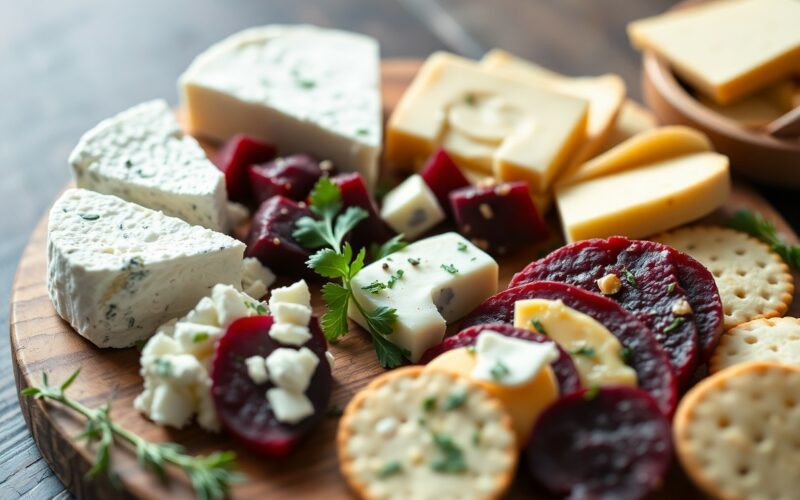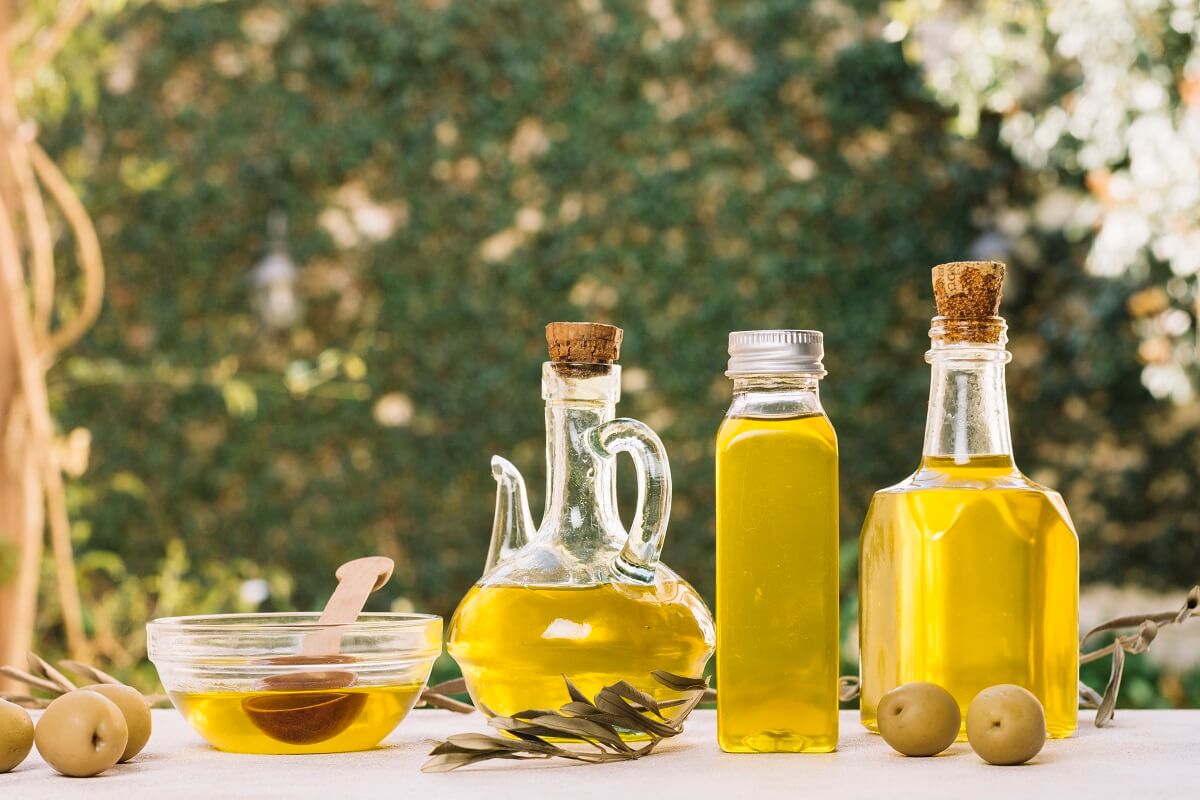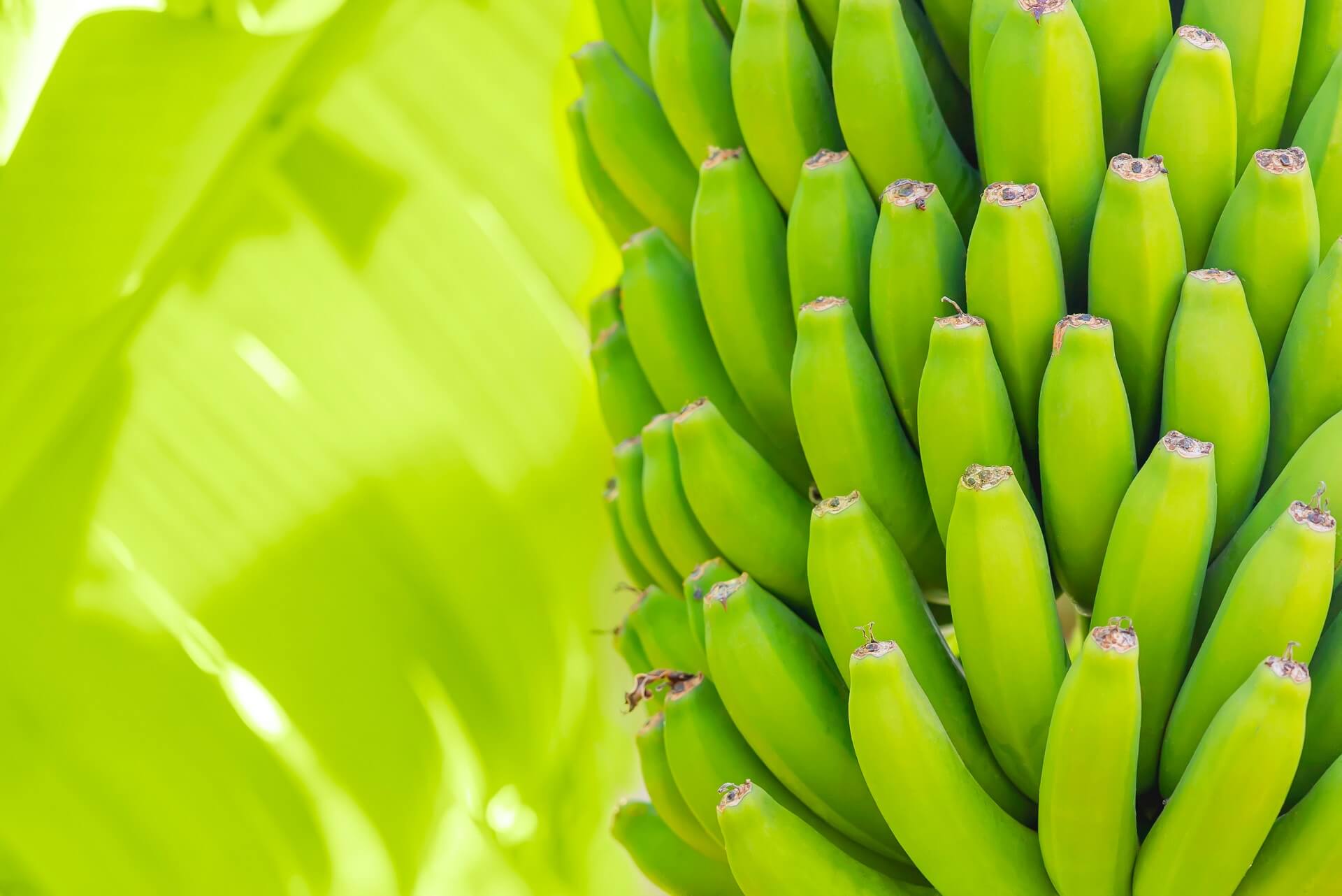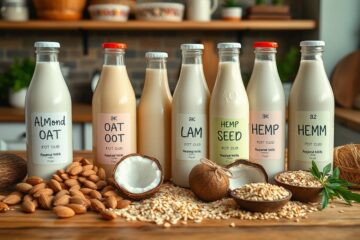Just as you begin on your journey to a more plant-based diet, you might be wondering how to satisfy your cheese cravings without the dairy. The good news is that there are delicious and nutritious vegan cheese alternatives that can elevate your meals while keeping your health in check. These options not only provide the creaminess you desire but also come packed with necessary nutrients and flavors that will surprise your taste buds. Join us as we explore the top 10 vegan cheese alternatives that can make your transition smoother and your dishes more enjoyable.
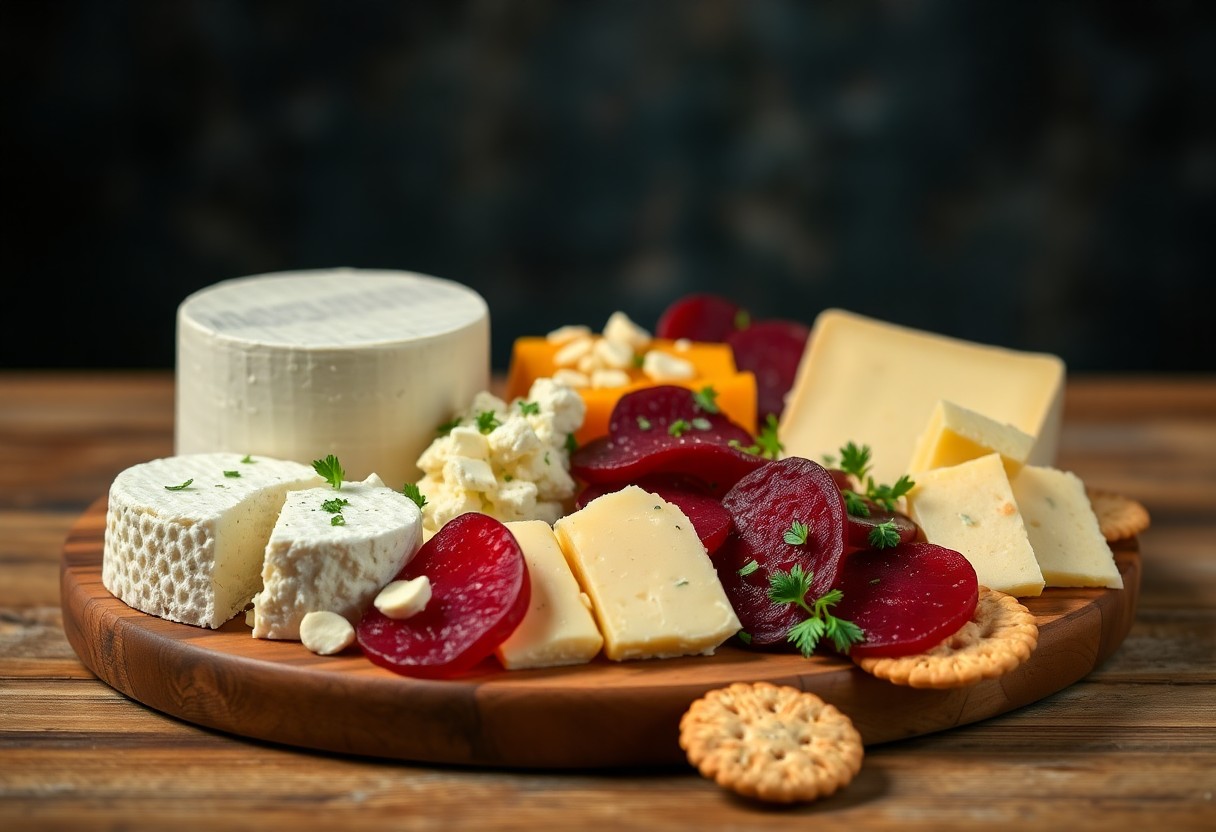
Table of Contents
Key Takeaways:
- Vegan cheese alternatives are typically made from plant-based ingredients such as nuts, soy, and coconut, offering diverse flavors and textures.
- Popular options include cashew cheese, which is creamy and versatile, and almond cheese, known for its mild taste and ease of use in various dishes.
- Many vegan cheeses are fortified with nutritional yeast, providing a cheesy flavor and additional nutrients like B vitamins.
- Fermented varieties, such as those made from coconut or soy, offer a tangy taste reminiscent of traditional cheese and contain probiotics beneficial for gut health.
- The availability of vegan cheeses has increased, with numerous brands offering products that cater to different dietary preferences and flavor preferences.
Nutritional Yeast
Cheesy flavor
The flavor profile of nutritional yeast is one of its most appealing features, making it an excellent cheese alternative for many vegan dishes. Some describe its taste as a nutty, cheesy flavor that enhances everything from pasta to popcorn. You can sprinkle it liberally on your favorite dishes, and you’ll be amazed at how it lends a creamy, savory twist without any dairy. With its ability to mimic the beloved taste of cheese, nutritional yeast can be the perfect ingredient to satisfy your cravings while keeping your meals plant-based.
High in B vitamins
An additional benefit of nutritional yeast is its rich content of B vitamins, particularly B12 when fortified. This makes it an imperative food item for those following a vegan diet, as vitamin B12 is typically found in animal products. Including nutritional yeast in your meals can support your overall health and well-being, giving you the nutrients that are sometimes lacking in plant-based diets. With just a few sprinkles on your food, you can easily boost your intake of these important vitamins.
It’s important to note that not all nutritional yeasts are fortified, so be sure to check the label if you’re specifically looking for B12. Many people may benefit from a B vitamin boost to improve energy levels and overall mood. The inclusion of nutritional yeast in your diet not only adds a delightful cheesy taste but can significantly contribute to your nutritional needs, keeping your vegan lifestyle balanced and healthy.
Cashew Cheese
Any cheese lover can appreciate the creamy goodness of cashew cheese. This plant-based alternative is made from soaking cashews and then blending them with nutritional yeast, lemon juice, and various herbs for added flavor. If you’re looking for a more detailed overview of vegan cheese options, be sure to check out The Complete Guide to Vegan Cheese. Cashew cheese’s versatile flavor profile can elevate your favorite dishes, whether you’re spreading it on crackers or dolloping it over pasta.
Creamy Texture
Cheese enthusiasts typically rave about the creamy texture that cashew cheese brings to the table. Its smooth and rich consistency makes it an excellent choice for creating dips, sauces, and even a cheese-like spread that closely resembles traditional dairy cheese. The combination of soaked cashews and careful blending techniques helps achieve that velvety mouthfeel that many cheese lovers seek. Once you incorporate this alternative into your cooking, you’ll find it to be an incredibly satisfying substitute for many cheese applications.
Rich in Protein
Protein is an crucial nutrient, and you can find it in abundance in cashew cheese. This nut-based alternative is not just a delicious choice; it’s also packed with high-quality protein that can help support your dietary needs. When you switch to cashew cheese, you’re providing your body with the amino acids necessary for muscle repair and growth. Furthermore, cashew cheese typically contains healthy fats, making it a nutrient-dense option that keeps you satiated and energetic throughout the day.
Rich in flavor and texture, cashew cheese is a powerhouse of plant-based protein that can fit seamlessly into your vegan lifestyle. Besides protein, it also provides crucial vitamins and minerals that contribute to overall health. By incorporating this cheese alternative into your diet, you not only enjoy a delicious product but also offer your body the nourishment it craves while adhering to your dietary choices.
Almond Cheese
After exploring various vegan cheese alternatives, you may stumble upon almond cheese, a delightful option that has gained popularity among plant-based enthusiasts. Known for its rich and creamy texture, almond cheese can be utilized in a variety of dishes, from creamy pasta sauces to savory vegan pizza. For more insights into other alternatives, feel free to check out Vegan cheese: The 10 best dairy-free cheese alternatives.
Nutty Taste
Any fan of nut-based foods can appreciate the distinctive nutty flavor that almond cheese brings to your palate. This unique taste is attributed to the natural essence of almonds, providing a deliciously creamy and slightly sweet profile, which pairs exceptionally well with a variety of ingredients. You can enjoy almond cheese on its own, spread on crackers, or as part of a gourmet cheese board where its flavor will stand out.
Low-Calorie Option
With almond cheese being predominantly made from almonds, it offers a low-calorie alternative to traditional cheese, making it an excellent option for those seeking to lower their calorie intake while still indulging in delightful flavors. This means you can enjoy the rich taste of cheese without compromising on your dietary goals. Almond cheese is also free from cholesterol and contains heart-healthy fats, making it a nutritious choice.
Plus, if you’re watching your weight or aiming to maintain a healthier lifestyle, incorporating almond cheese into your meals allows you to enjoy a satisfying cheese taste without the guilt. Packed with protein and nutrients, almond cheese provides crucial benefits beyond just being a tasty treat. By choosing this low-calorie option, you can still create indulgent meals while sticking to your health-conscious choices.
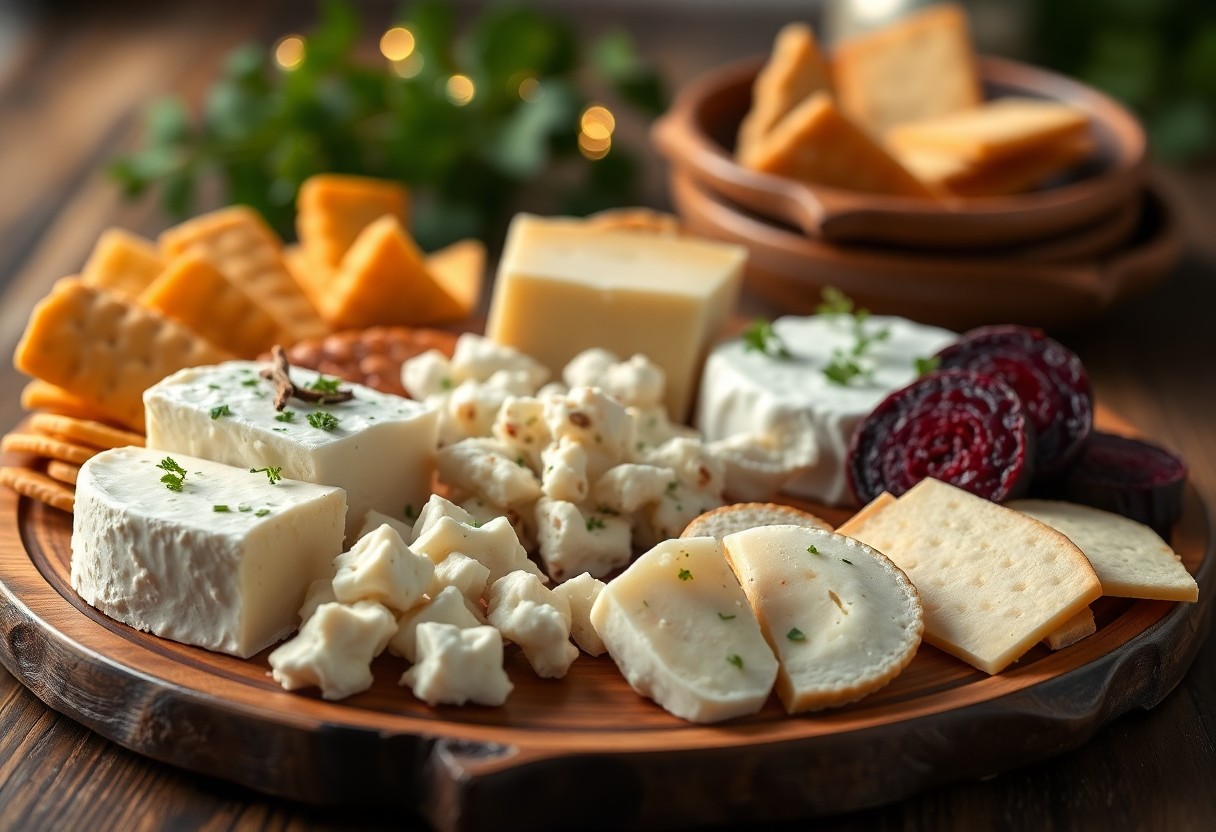
Soy Cheese
Your journey towards exploring vegan alternatives wouldn’t be complete without the inclusion of soy cheese. This plant-based cheese is derived from soy protein and is a popular choice among those seeking to mimic the texture and flavor of dairy cheese. Because of its creamy consistency, soy cheese serves as a perfect ingredient for a variety of dishes, whether you’re topping your pizzas, melting into pasta, or simply spreading on bread. You will find that it comes in a variety of flavors and forms, from blocks to shreds, expanding your culinary possibilities significantly.
Versatile Ingredient
Assuming you are looking for a dairy alternative that easily integrates into your meals, soy cheese might just be the perfect fit. This type of cheese is exceptionally adaptable, which makes it ideal for everything from savory dishes to flavorful desserts. You can use it in casserole dishes, mix it with vegetables for a tasty dip, or even incorporate it into baked goods, allowing you to introduce a hint of creaminess without compromising your dietary choices. The flexibility of soy cheese allows you to be both creative and health-conscious in the kitchen.
Gluten-free Choice
The potential of soy cheese extends beyond its versatility; it also serves as an excellent gluten-free option. For anyone who has gluten sensitivities or conditions like celiac disease, finding dairy alternatives that also fit a gluten-free diet can be challenging. Thankfully, soy cheese is primarily made from soybeans, which are naturally gluten-free, allowing you to enjoy cheesey goodness without the worry of gluten contamination.
Any time you select soy cheese, you can feel confident that you are choosing a product that both supports your commitment to a vegan lifestyle and accommodates gluten-free requirements. Be sure to check the ingredients on the packaging to avoid any unexpected additives, as not all soy cheese products are created equal. Embrace the flavor and texture that soy cheese brings to your meals, enhancing your dishes while adhering to your dietary preferences.
Coconut Cheese
Many people are turning to coconut cheese as a delightful alternative to traditional dairy cheese, particularly in vegan diets. Made from coconut milk, this cheese variety can mimic the textures and flavors of its dairy counterpart while offering a whole new taste experience. Coconut cheese is especially popular in the form of cream cheese, shreds, and blocks, making it a versatile option for various culinary uses. You can easily add it to your favorite dishes, from vegan pizzas to creamy pasta, enhancing your meals with a unique and exotic flavor profile.
Delightfully creamy
You will find that coconut cheese is impressively creamy, making it a perfect ingredient for spreading on crackers or bread. Its smooth texture provides an indulgent experience that many dairy cheeses can’t match. This creamy quality also makes it an excellent base for dips or desserts, allowing you to create delicious vegan variations without sacrificing flavor or satisfaction. Your taste buds will surely appreciate the delightful richness that coconut cheese brings to the table.
Lactose-free alternative
The great advantage of coconut cheese is that it serves as a lactose-free alternative for those who are allergic to lactose or simply choose to avoid it. Made entirely from coconut milk, you can enjoy this cheese without the discomfort associated with dairy products. This makes it an ideal choice for individuals with lactose intolerance or those looking to explore plant-based diets without compromising flavor or texture.
It’s important to note that coconut cheese not only caters to those with lactose intolerance but also offers a unique flavor and texture profile that adds diversity to your plant-based diet. As you include coconut cheese in your meals, you can feel good about making a dietary choice that aligns with your health and ethical values while still enjoying the creamy and mouth-watering taste that traditional cheese provides.

Tofu Cheese
Now, tofu cheese is a fantastic alternative for those looking to enjoy a creamy, cheese-like texture without compromising their vegan lifestyle. Known for its versatility, tofu can be flavored and seasoned to mimic a variety of cheese types, making it a favorite among vegan cheese enthusiasts. Tofu cheese is often lower in calories and fat compared to traditional cheese, so it provides a guilt-free way to enhance your meals while also introducing a healthy source of protein into your diet.
Pressed Variety
You’ll find that the pressed variety of tofu cheese is quite popular due to its dense texture, which allows it to hold its shape when sliced. This type of tofu cheese is made by removing excess moisture, which helps concentrate its flavors and create a firmer consistency. It shines in savory dishes where you might typically use cheese, such as pasta, sandwiches, or salads, and it can even be marinated to add a depth of flavor that can rival traditional cheese.
Great for Spreads
Great news for dip lovers: tofu cheese can be transformed into delectable spreads that are perfect for crackers, sandwiches, or vegetable platters. By blending tofu with herbs, spices, and healthy fats like olive oil or nuts, you can create a creamy, rich spread that is both satisfying and nutritious. Experimenting with various flavor combinations will enable you to enjoy a diverse selection of spreads, so you won’t get bored while enjoying your plant-based lifestyle.
Any time you whip up a spread using tofu cheese, you are not only treating yourself to a delicious addition to your meals but also reaping the benefits of its nutritional profile. The inclusion of tofu provides a great source of protein, while the ability to customize your seasonings allows you to cater to your personal taste preferences. Plus, since tofu is naturally low in cholesterol and saturated fats, you can indulge without the drawbacks associated with traditional cheese spreads.
Vegan Parmesan
All cheese lovers looking for a dairy-free option should consider vegan parmesan, which delivers that familiar cheesy essence without any animal products. This alternative can be made from various plant-based ingredients, often featuring nuts, nutritional yeast, and seasonings to replicate the sharp, nutty flavors of traditional parmesan. You can easily incorporate vegan parmesan into your favorite pasta dishes, salads, or even as a seasoning on popcorn for a gourmet snack.
Grated option
If you are searching for a quick and easy option, you might want to try pre-grated vegan parmesan that you can find in grocery stores. This handy ingredient makes it easy to sprinkle atop dishes without any additional preparation needed. With just a few shakes, you can elevate your meals, making them taste just as savory and indulgent as those prepared with dairy cheese.
Adds flavor
If you are looking to enhance the overall taste of your dishes, vegan parmesan is an excellent addition. Its unique combination of ingredients, often including nutritional yeast, provides a rich, cheesy flavor that complements a variety of cuisines. Whether you’re making pasta sauces, risottos, or vegetable dishes, just a sprinkle of vegan parmesan adds depth and satisfaction.
Plus, incorporating vegan parmesan into your meals not only elevates flavors but can also contribute nutritional benefits. Many recipes include nuts or seeds that are high in protein and healthy fats, making this alternative a more wholesome option compared to traditional cheese. So, by choosing vegan parmesan, you’re not just indulging your taste buds; you’re also making a positive impact on your health and well-being.
Pea Protein Cheese
Not just for your garden-variety smoothie, pea protein has emerged as a fantastic alternative for those looking to enjoy cheese without the dairy. This versatile protein source is not only rich in nutrients but also provides a creamy texture that mimics traditional cheese. You can find pea protein cheese in a variety of forms, from spreads to block cheeses, making it easy to incorporate into your meals and snacks. Its mild flavor makes it an excellent canvas for seasoning or pairing with your favorite dishes.
Dairy-free
Even if you are new to the world of vegan cheese, you will find that pea protein cheese is a satisfying option. It allows you to indulge in the cheesy flavors you love without any of the dairy. This makes it a great choice for those with lactose intolerance or anyone looking to cut down on animal products. Plus, with a high protein content, pea protein cheese provides an excellent nutritional profile that can complement your plant-based diet.
Sustainable source
Cheese alternatives created from pea protein are also a step towards a more sustainable food system. By utilizing peas as a primary ingredient, you are opting for a food source that requires less water and land compared to traditional dairy products. This helps alleviate some environmental pressures associated with livestock farming, such as greenhouse gas emissions and deforestation.
For instance, producing pea protein cheese utilizes significantly fewer natural resources—water, land, and energy—when compared to conventional cheese made from cow’s milk. This means that not only are you making a healthier choice for your body, but you’re also contributing to a healthier planet. By choosing pea protein cheese, you can enjoy your favorite flavors while minimizing your ecological footprint, aligning your diet more closely with sustainable living practices.
Sunflower Seed Cheese
Keep in mind that sunflower seed cheese is a fantastic option for those on a plant-based diet. This cheese alternative is not only nut-free, making it an excellent choice for individuals with nut allergies, but it is also packed with nutrients such as protein and healthy fats. As you explore various vegan cheese options, Not All Vegan Cheeses Are Healthy: Here Are My … recommendations may guide you to healthier selections for your lifestyle.
Nut-free
On the hunt for tasty cheese alternatives that won’t trigger nut allergies? You can feel confident choosing sunflower seed cheese, as it provides a creamy texture and delicious flavor without the risk associated with nuts. Made primarily from sunflower seeds, it serves as a perfect base for plant-based recipes, ensuring that everyone can enjoy the taste of cheese without compromising their health or dietary restrictions.
Flavorful Alternative
Little do many realize, sunflower seed cheese can be just as flavorful as traditional dairy cheese. This cheese alternative boasts a naturally mild flavor that easily takes on various seasonings. Whether you prefer a zesty herb blend or a smoky finish, sunflower seed cheese adapts beautifully to your culinary whims. Not only is it versatile, but it also contains a wide range of vitamins and minerals, making it an incredibly nourishing choice.
For instance, you could use sunflower seed cheese in dips, spreads, or even as a topping for pizzas and pasta dishes, ensuring your meals are both delicious and satisfying. By opting for this sunflower-based cheese, you are not only indulging in a rich source of necessary nutrients but also supporting a sustainable lifestyle with a lower environmental impact compared to traditional dairy cheese. Your exploration of plant-based alternatives can lead to exciting culinary adventures that are both health-conscious and delectable.
Final Words
Upon reflecting on the diverse landscape of vegan cheese alternatives, you can see a wealth of options that cater to various tastes and dietary preferences. From nut-based cheeses to those made from soy or tapioca, the alternatives available today not only mimic the textures of dairy cheese but also offer distinct flavors that can elevate your culinary creations. Whether you are looking to add a creamy topping to your pasta, a savory option for your sandwiches, or a delectable addition to your cheese platter, these top 10 vegan cheeses have something for everyone.
As you explore these vegan cheese alternatives, take the time to sample different brands and flavors to find what best suits your palate. You might find that some varieties work better in specific dishes, while others can stand alone as a delicious snack. With so many innovative and tasty options in the market, you can enjoy the rich and satisfying experience that cheese brings, all while adhering to your plant-based lifestyle. This journey towards discovering vegan cheeses not only broadens your culinary horizons but also aligns with sustainability and health-conscious choices.
FAQ
Q: What are some popular ingredients found in vegan cheese alternatives?
A: Vegan cheese alternatives often utilize a variety of ingredients to mimic the texture and flavor of dairy cheese. Commonly used ingredients include nuts (such as cashews and almonds), seeds (like sunflower and nut-based spreads), soy products (like tofu), nutritional yeast for a cheesy taste, and tapioca or agar-agar for creaminess and meltability. These ingredients are blended or fermented to create a variety of flavors and textures.
Q: Are vegan cheese alternatives healthier than traditional cheese?
A: Vegan cheese alternatives can offer certain health benefits over traditional cheese, particularly for those looking to reduce saturated fat and cholesterol intake. However, it’s important to note that not all vegan cheeses are created equal. Some may contain high levels of sodium or additives, so it’s advisable to read the labels. Nutritional yeast, for example, is a great source of B vitamins and is often included in whole-food vegan cheese products.
Q: Can vegan cheese alternatives melt just like dairy cheese?
A: The melting ability of vegan cheese alternatives varies widely depending on the brand and type of ingredients used. Some products, such as those based on tapioca or cashew, can melt well and stretch similar to traditional cheese, making them suitable for pizzas, quesadillas, and casseroles. It’s best to look for products specifically labeled as meltable or stretching vegan cheeses if that’s a key requirement.
Q: How can I incorporate vegan cheese alternatives into my meals?
A: Vegan cheese alternatives can be incorporated into a wide range of dishes. They can be used in sandwiches, salads, pizzas, and pasta dishes, providing a creamy texture and distinctive flavor. For example, cashew cheese works well as a spread or dip, while vegan mozzarella can enhance the experience of a cheesy pizza. Also, consider using nutritional yeast as a topping for popcorn, pasta, or roasted vegetables for an extra umami flavor.
Q: Are there any common allergens in vegan cheese alternatives I should be aware of?
A: Yes, while vegan cheese is often a go-to for those with dairy allergies, it can still contain common allergens. Nuts, particularly cashews and almonds, are commonly used in many creamy vegan cheeses. Soy is another frequent ingredient in certain types. Additionally, gluten may be present in some processed products, so it’s crucial to check labels for allergens if you have sensitivities or allergies. Brands often indicate allergen information clearly on their packaging.

Our contributing author is a passionate advocate for eco-friendly living and sustainability. With a background in eco-life, they are dedicated to inspiring and empowering individuals to adopt environmentally conscious lifestyles. Through insightful articles, they share practical tips, innovative solutions, and thought-provoking perspectives to promote a greener, more sustainable world. Join them on the journey towards eco-smart living and discover how small choices can make a big impact. 🌱

